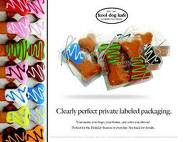 Certainly one of the ongoing point/counterpoint narratives in the world of brands is the competition between premium brands and their private label product rivals. For premium brands to flourish, they prefer a robust economy that will more easily support their pricing differential. Conversely, private labels presumably benefit on a relative basis in an economic downturn with low or no inflation, where diminished consumer purchasing power puts pricing pressure on premium brands.
Certainly one of the ongoing point/counterpoint narratives in the world of brands is the competition between premium brands and their private label product rivals. For premium brands to flourish, they prefer a robust economy that will more easily support their pricing differential. Conversely, private labels presumably benefit on a relative basis in an economic downturn with low or no inflation, where diminished consumer purchasing power puts pricing pressure on premium brands. Assume that the foregoing is correct and describes what occurred during the darkest days of the world-wide (or nearly so) Great Recession. What happens to the relative position of premium brands and private level competitors when the Great Recession gives way to a sub-par economy recovery, under unusual credit and interest rate circumstances, and low inflation suddenly gives way to inflationary pressures in commodities?
One possible answer can be found in an article that appeared in the March 21st issue of Bloomberg Businessweek. Entitled "Nestlé's Recipe for Juggling Volatile Commodity Costs,", the article describes the response of the Swiss food giant to spiking commodity prices in an economic climate of tepid growth, especially in the developed world. There is likely no company in the food industry more exposed to commodity price changes than Nestlé. As the article points out, the company spends over $30 billion yearly on raw materials, which includes purchasing nerly 10% of the coffee crop worldwide, 12 million metric tons of milk and more than 300,000 tons of cocoa. The interesting question is how the company's dependence on commodity prices affects its strategy in promotimg its premium brands.
 According to the article, the company has made a strategic assumption that commodity pries will not decline anytime soon. Instead, Nestlé is banking on squeezing cost efficiencies from operations, seeking to raise prices as well, to launch what are described as "more upscale, higher margin products in which raw material costs account for a smaller portion of the retail price." For instance,the company has made a great push into upscale coffee through the sale of single-serve capsules for the Nespresso coffee machines (aided by commercials featuring George Clooney). Whatever the increased cost of the coffee might be, the pricing for these capsules enjoys a price that is 10 times (!) the price that rivals command per cup for unground beans. Additional examples include Mövenpick, a gourmet ice cream with exotic tastes, which is sold in smallish portions that are equivalent to about $15 per quart.
According to the article, the company has made a strategic assumption that commodity pries will not decline anytime soon. Instead, Nestlé is banking on squeezing cost efficiencies from operations, seeking to raise prices as well, to launch what are described as "more upscale, higher margin products in which raw material costs account for a smaller portion of the retail price." For instance,the company has made a great push into upscale coffee through the sale of single-serve capsules for the Nespresso coffee machines (aided by commercials featuring George Clooney). Whatever the increased cost of the coffee might be, the pricing for these capsules enjoys a price that is 10 times (!) the price that rivals command per cup for unground beans. Additional examples include Mövenpick, a gourmet ice cream with exotic tastes, which is sold in smallish portions that are equivalent to about $15 per quart. Also noteworthy is the company's high-margin bottled water product--PURE LIFE-- described as the world's largest bottled water brand. The upshot is, according to Nestlé, that being able to command premium prices for its brands makes it easier for the company to swallow increased world commodity prices. In the words of the Nestlé CEO Paul Bulche, "[p]rivate label is raw material cost with a mark up. As the raw material cost incrasesm they are much harder hit than branded products."
The examples brought in the article neither support or refute Bulche's claim. The single-serve capsules for the Nespresso coffee machines, and the measured, pricy portions of Mövenpick gourmet ice cream seem to me to be only niche products. There is nothing in the article that explains why a mainstream product like Taster's Choice coffee enjoys the same pricing power in the face of increasing raw coffee prices. As for PURE LIFE bottled water, it is a non-commodity-based product. The article only hints that this brand has continued to enjoy oversized profits and to successfully compete against private label competitors.
The upshot is that the article provides only some tantalizing morsels of information about how Nestlé plans to compete against private label competitors in the current unsettled economic climate. In truth, given the size of the company, Nestlé's response may depend on what product is involved, making any one-size-fits-all product solution to the challenge of private label competitors inappropiate. To the extent that information on this will be publicly available, it will be interesting to follow this topic, which will have major implications for a broad array of consumer product categories.
No comments:
Post a Comment